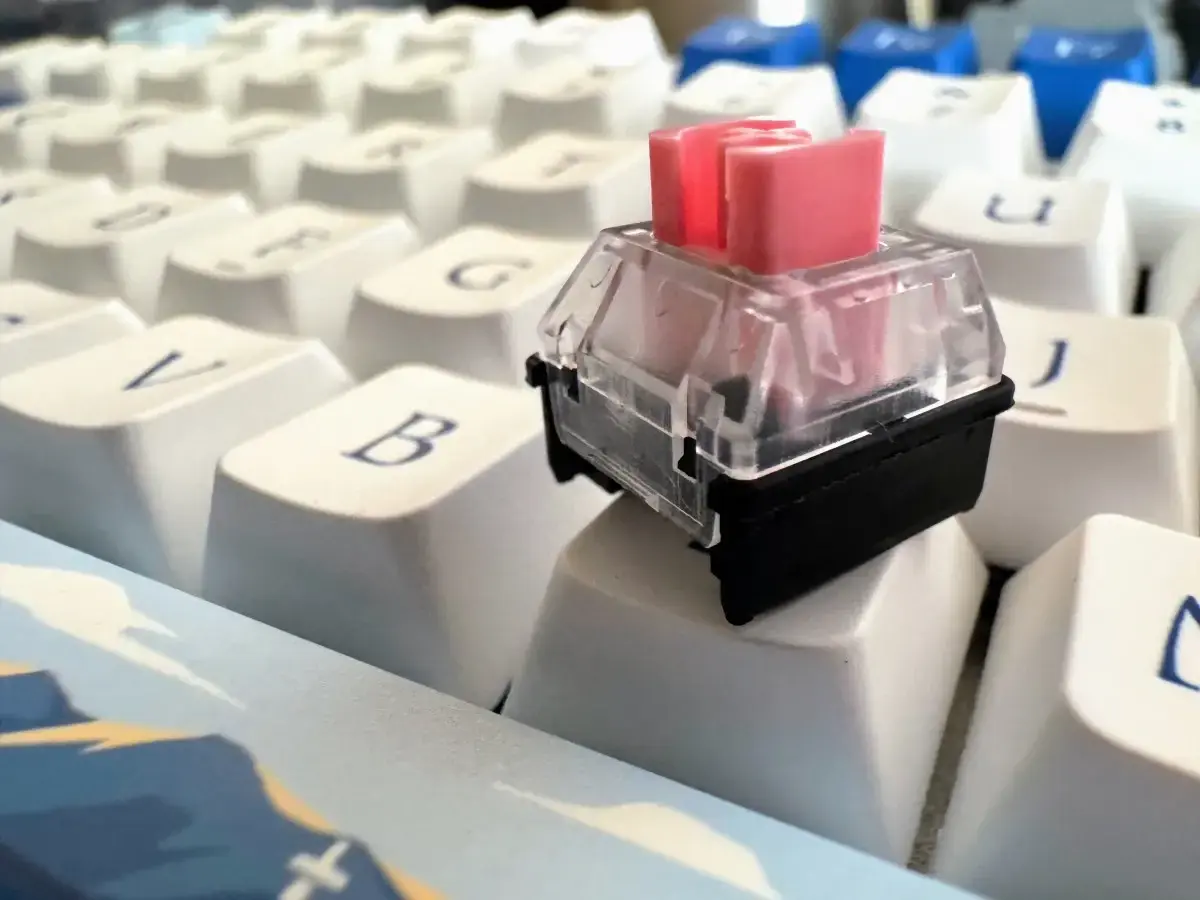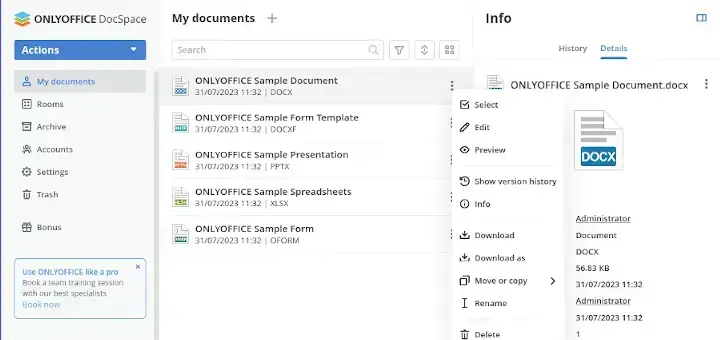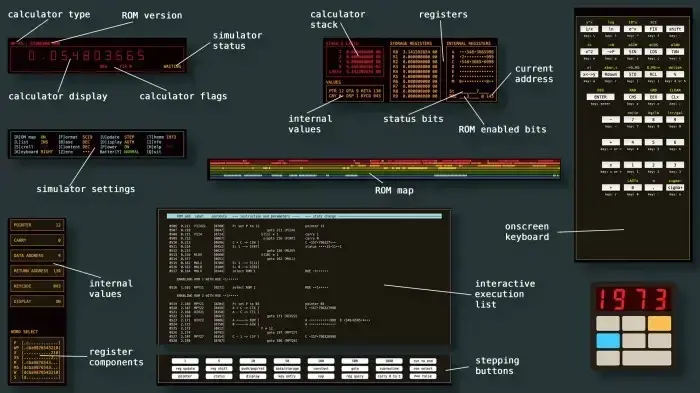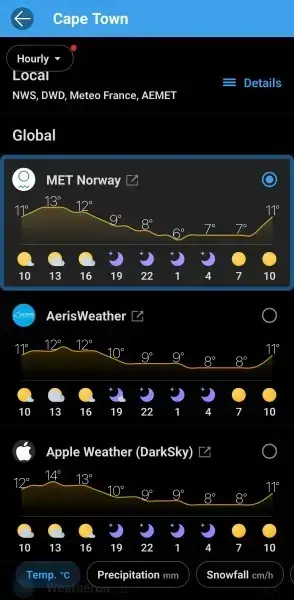




I blog about #technology #gadgets #opensource #FOSS #greentech #traditionalwetshaving #LCHF #health #alternativeto #hamradio (ZS1OSS) #southafrica - see https://gadgeteer.co.za/blog. I also blog to various other social networks which I list at https://gadgeteer.co.za/social-networks-i-post-to.
Could be yes - although I seem to think with my transfer from one Samsung to another it brought the files and settings over. Can't remember for sure now as was over a year ago, but I did not recall any major issue.
I was thinking more of its native file format it saves to. It said "import from Markdown" which seemed to suggest it is not saving all in Markdown (otherwise would have said opens and saves to). But maybe it is just badly worded.
QOwnNotes (https://github.com/pbek/QOwnNotes) may be an option as it is pure Markdown and need not have both the code and preview windows open. I used it before moving to Obsidian. It has some options to customise its window views, but it is a long time since I used it, so not sure if it has that block mode you want. Logseq I seem to recall worked with blocks as it is an Outliner that does save in Markdown format, but I did not like that the outline blocks added characters to the file format that slightly broke compatibility with standard Markdown formats. But blocks was Logseq's strength.
Although it says it "imports Markdown" so not sure if it is an actual Markdown format editor.
I only choose to buy hardware that I can connect to Home Assistant, because I can still use it if the company goes bust or no longer supports it. I have one dashboard in HA that manages all my different devices. Point is, I still buy the hardware and the sale is made. I'm not going to buy 5 different standard products which must all be managed through separate apps. Open standards can open up to a much bigger market. There is good reason why so many OEMs opened up to the Matter protocol.
But as I say, I check first for compatibility, then I narrow my choices from there. So yes, right now your company's IOT product won't get onto my radar. Been there, done that, and got a handful of dead paperweights to show for it.
Today was a bit easier
Jumblie #242 🔴🔵🟢🟠 7 guesses in 2m 14s https://jumblie.com
Ah, see it now in results - never heard that before. We normally speak of toppings or stuffings.
It very much is, but British English so wondering if that was a US term
Thanks, no, I surrendered ;-) but still can't figure out why that 6-letter word relates to potato specifically. Just not something I can really relate to potato specifically.
Nope I bombed out - no idea what the association of the 6 letter word was with potato
Token2 is an open-source Swiss FIDO2 security key that brings innovative features at a cheaper price
Good point on OpenPGP. I suppose I already do my mails with OpenPGP in Proton Mail (using my own key that is already uploaded). But something to keep in mind yes.
Token2 is an open-source Swiss FIDO2 security key that brings innovative features at a cheaper price
Seems it fits on a lanyard string from what I see of the other photos. A keyring is thicker and would put twisting force on it, yes. So, seems the lanyard type connector may be better for long term use.
Jumblie is a challenging browser-based open-source puzzle game to guess the four words of the day
The game has a theme word for each day, so keep that in mind when guessing the words. It is more challenging than Wordle because there are no hints apart from the theme word. So, if one of the words is 'landing' and you guessed 'land' there is no confirmation you're getting warm at all.
How to play it: There are exactly four words hidden amongst the letters, and all letters are used exactly once. The words will always be between 4 and 9 letters long. Click on the letters (or type them on your keyboard) to spell a word. When you have a word you want to submit, click the "Submit" button. If the word is one of the daily words, it will be added to your found list of words. Find all four words as fast as you can! Each successful word is assigned a colour, so a red word will mean the shortest word is taken, so don't try to guess more words with that same length of letters.
You can also click the Reshuffle button to rearrange the letters, which can help spark some ideas.
If you're struggli
Token2 is an open-source Swiss FIDO2 security key that brings innovative features at a cheaper price
OTP Token, TOTP token, Replace your mobile authenticator with secure hardware OTP token! Easily programmed via NFC. Designed to use with Google, Facebook, Dropbox, GitHub, Wordpress, Office 365, Azure MFA etc.
Token2 is a cybersecurity company specialized in the area of multifactor authentication. Founded by a team of researchers from the University of Geneva with years of experience in the field of strong security and multifactor authentication. Token2 has invented, designed and developed various hardware and software solutions for user-friendly and secure authentication. Token2 is headquartered in Geneva, Switzerland.
Don't believe what AI tells you, as they tend to generalise around past statements. Token2 is a good example of how newer challengers to the incumbents, like YubiKey, bring lots of innovation. For example, Token2 has the ability to store up to 300 passkeys, dual port USB-A and USB-C on a single device, FIDO2.1 with additional PIN, opens-source, etc.
I also like the fact the device's firmware and management is in Switzerland and not within one of the Five Eyes countries.
There are quite a few options, but their FIDO2 Keys page also has a selection wizard to help out.
Whils
No they don't have a central managed hosting, and that is the point they are making. It is intended for someone to host for their family and friends. There may be some hosting it at various places but no central list you can find them on. Those sites, of course, will federate with other Fediverse networks, but no-one will necessarily even know they are GoToSocial nodes.
Yes, but it is a bit unusual for a "beta" to be the stable version, when there is a such a thing as "stable". Beta is normally taken to be a testing version, between alpha and stable releases. But it shows we can't just go on our own assumptions about what alpha and beta mean.
Yes I think they're meaning they're still adding lots of new features possibly, but it is a bit confusing as I think of Alpha as raw and not production ready. Beta can be ready for testing with brand new features, and stable is usually production ready and all features already passed beta testing. I get it is for home use but still. Maybe they're covering themselves legally, but then you can just say "use at your own risk". It's possible too they don't have separate branches at all, and just add/update/fix the "alpha" version.
From their site: "It is already deployable and useable, and it federates cleanly with many other Fediverse servers (not yet all). However, many things are not yet implemented, and there are plenty of bugs! We foresee entering beta around the beginning of 2024.". I would say it should be described more as beta by now from that description.
Gmail was in beta for many years whilst it was in production, and Meshtastic only has alpha and beta releases, with no "stable" release. I think some projects feel if they are still adding features it says in beta and never reall is in stable until they stop adding features. But yes they should actually iterate through alpha, beta, RC, stable. Not everyone does, though.
Let's agree on newer. It is not even in stable release yet, and until this week I'd not even heard about it anywhere else.
Yes, as there is full control over what is exposed or mapped for the app including network ports, and future updates don't get broken by inconsistent dependencies. I suppose if you run only one service on a machine and stick to standard ports for reverse proxying then maybe a binary install can be simpler. But if you want to install multiple apps ona server containers does become easier to manage and update.
Yes not "new" per se, but it is still in early Alpha release and mostly unknown to everyone. Nextcloud and most of the others have been around many years and have had iterative stable releases. I was actually on Mastodon since 2016 so GoToSocial is a lot newer at around 3 years. But yes point taken, "new" is not the best description.
They say it is less complex than Mastodon as well as lighter weight requirements. A Docker install is usually also easiest. So I'd say it is a better option to try for friends and family.
GoToSocial is a new ActivityPub social network server for the Fediverse

Fast, fun, small ActivityPub server. Contribute to superseriousbusiness/gotosocial development by creating an account on GitHub.

This service is still in Alpha release but is already deployable and usable, and federates with other Fediverse servers.
However, there is no "main" instance you go to join. The intention really is that you host your own instance for yourself and a few friends and family. To this end, it is designed to be very lightweight and will happily run on a Raspberry Pi or even a $5/pm VPS.
This is taking a very different approach from say Mastodon which has one main instance everyone could join, but then it sits with the issue that everyone joins there, and it becomes a bit "centralised". GoToSocial has been designed as lightweight for self-hosting, and also has a Docker image installation, so it makes it really easy for (and encourages) most people to host their own instance.
It seems to also be focussed very much around privacy (defaults to unlisted posts) and permission controls (for example, you have an option to post to mutual-only where both people follow each other). Also, by hosting
This Asus PC case monitors your dust filter so you don't have to
Traditionally, one would have to periodically check the status of the dust filtering on a PC case, but that's not the case (pun intended!) with the Asus ProArt PA602. This chassis has a fancy infrared (IR) sensor behind the front-facing dust filter. Should this detect a set layer of dust covering the filter material, a small LED will illuminate on the side of the case. It's tastefully done. No alert on an LCD screen, no obnoxious sound. With this activated, you will know to clean the filter (and give the inside a quick air blast) next time the system has been shut down.
Quite a thoughtful case, apart from having the dust filter warning, it also has wheels to move it more easily.
But it does show also, is that even cases can innovate as well. I'd like to see more of these and maybe have the sensors also on the other dust filters (my case has one underneath as well), as IR sensors themselves are not very expensive to incorporate.
Magnets are switching up the keyboard game with an additional keystroke setting

The next big thing in mechanical keyboards is magnetic switches. Mechanical keyboards quickly went from a niche product to mainstream during the pandemic,

These keyboards rely on magnets and springs and activate by sensing changes in the magnetic field. Popularized by Dutch keyboard startup Wooting, these switches rely on the Hall Effect and have actually been around since the 1960s.
You can change how far you need to press down to register the keystroke, as well as for the release point.
The one thing you can’t change, though, is the switch’s resistance. Despite all the talk of magnets, that’s still handled by the spring inside the switch, after all (for the moment, until the xyz is released).
But interestingly, this also means with temperature differences, you may also have to "calibrate" your keyboard. The price point for the Akko MOD007B PC Santorini keyboard at around US$110 to $150 is certainly not more expensive than many mechanical keyboards.
See https://techcrunch.com/2024/04/07/magnets-are-switching-up-the-keyboard-game/
#technology #keyboards
Overview of Memories Advanced Photo Management Suite that installs inside Nextcloud

Click to view this content.
Memories is a fast, modern and advanced photo management suite, that installs quickly and easily inside Nextcloud. My video contrasts it with the Photos app that comes with Nextcloud, and highlights some reasons why you may want to use it instead of Photos. This app has face, object, landmark, place, and human action recognition capability through the Recognise app. It's not that obvious, but albums can be shared, and photos commented on, with other Nextcloud registered users using the underlying Nextcloud file commenting system.
Memories is a great way to collaborate and share photos privately with friends and family, and even to share public links to some of your albums. It can even work on a Raspberry Pi hosted in the home.
It also has apps for iOS and Android, which can optionally auto-upload photos into Memories.
By saving/reading titles and descriptions into the photo's EXIF headers means that importing or exporting out of Memories is a lot less of a chore with migrating betwe
This is a good tutorial for morphing two still images into an animated GIF with GIMP

Click to view this content.
I've been wanting to animate the building of a Lego set but have been struggling to find really good morphing software. Most seems to be designed for faces, or they do plain animation with no morphing at all.
Eventually, after looking at a few options, I came upon the linked video below. Using the G'Mic plugin, it really gives pretty easy and full control over the morphing process. As my photos were not taken at the exact same angle, it meant some objects were in slightly different positions, and the morphing control allowed me to animate these as well into relative smooth animations.
Being open-source GIMP, it also means it is completely free and unlimited use without any trail software limitations.
I actually wanted to daisy-chain a few of these animations together, and whilst it is possible, my differencing angles have made that a bit messy. I should have taken my photos of just the object I wanted to highlight and kept all the other background objects out of the way. I have anot
Atuin is an open-source shell command history app for Linux with syncing, unlimited history, and with contextual search


Atuin replaces your existing shell history with a SQLite database, and records additional context for your commands. With this context, Atuin gives you faster and better search of your shell history!
Additionally, it provides optional and fully encrypted (E2EE) synchronisation of your history between machines, via an Atuin server, or you can self-host your own server. There is a single command to easily delete your data from the server too.
It supports zsh, bash, fish, and nushell shells right now.
The search is as easy as pressing the up arrow in the terminal and then scrolling back, or typing to search. But you could also type something like this to do a search [search for all successful make commands, recorded after 3pm yesterday
atuin search --exit 0 --after "yesterday 3pm" make].
Atuin offers configurable full text or fuzzy search, filterable by host, directory, etc. As it has context around dates, times, exit code, and even the directory location form where a command was
Mbin is a fork of kbin: a decentralized content aggregator running on the Fediverse network


Mbin is a decentralized content aggregator, voting, discussion and microblogging platform running on the fediverse network. It can communicate with many other ActivityPub services, including Kbin, Mastodon, Lemmy, Pleroma, Peertube. It is an open source alternative to other link aggregator services like Reddit. The initiative aims to promote a free and open internet.
Mbin is focused on what the community wants, pull requests can be merged by any repo owner (with merge rights in GitHub). Discussions take place on Matrix then consensus has to be reached by the community. If approved by the community, only one approval on the PR is required by one of the Mbin maintainers. It's built entirely on trust.
It seems it's claim to fame is being more open and accepting of community changes and improvements. It can install as either bare metal/VM or as a Docker container.
Although anyone can install it and self-host it, their project page also contains a link to various instances that already
Polycentric is an Open-source distributed social network - Similar in some ways to Nostr


I've not done an in-depth look at this network but reading through their documentation shows it has a lot of similarity to the basics of the Nostr protocol and network. There is just not as much information available on the Polycentric site as there is already for Nostr. Nostr is also censorship resistant, with distributed relays doing the relaying of posts (Polycentric calls them servers). Both use public-private key cryptography, with every post being cryptographically signed. Both networks also have the ownership of the identity managed by the end client (no-one can delete a client on either network), and those profiles can be used across devices.
And whilst basic posting looks very similar (microblogging type format, and is limited to 280 characters) this is also where the differences lie. Nostr has likes, whilst Polycentric only shows boosts (reshares) and reactions through commenting.
The Nostr protocol is also an extensible one, which means it has new NEP standards added by va
Big Ass Data Broker Opt-Out List that can Guide Opting out from Data Broker Databases

Contribute to yaelwrites/Big-Ass-Data-Broker-Opt-Out-List development by creating an account on GitHub.

This list, also known as BADBOOL, was started on September 29, 2017 and was most recently updated in October 2023 to add PimEyes and to remove TruePeopleSearch and Cyber Background Checks, since those sites will automatically remove your data if you successfully opt out of Intelius and BeenVerified.
Some of these opt-outs take a long time to go through. Sometimes, information is pulled from other sources, and you’ll need to opt out multiple times for the same site. Data brokers come and go (and are bought out by others), and they also often change their opt-out pages.
In many US states, real estate data and voter registration information is public (or easy to obtain). And, of course, location data can be found by physical means (e.g. following you home) and through other people who know it (i.e., social engineering). That said, removing your home address from data broker sites can significantly lower your attack surface and make it harder for people to find it.
This is mostly US foc
Omnivore is an excellent open-source read-it-later alternative to Pocket, that can be self-hosted as well


I use read-it-later services extensively to save any news I want to do blog posts about later, or something I want to look at in more detail when I have time (and three monitors).
I had been self-hosting Wallbag for quite a while, and did a video about it too, but I had some issues re-installing it when I moved to Docker container hosting on my VPS.
Ominvore certainly looks very interesting, with a modern interface and quite a few useful features. I'm starting so long with their free cloud hosted service, and could register with ease, and even initiate an import from Pocket. They do have a docker-compose file for setting up containerised self-hosting, but I'm going to wait a bit just to see if that matures a bit, as it seems it is early days still and no proper guide has been completed yet for it.
Apart from the usual saving links for reading later, with tags, archiving, etc, it also supports a clutter-free reader view for easy reading without adverts. In the reading view you can al
India, the world’s largest smartwatch market, is getting new smart rings by BoAt and Noise, similar to Oura but likely cheaper

BoAt and Noise, India's leading smartwatch and TWS earbuds manufacturers, are now entering the smart ring market.

Tech giants such as Apple, Samsung and Huawei have long focused on the wrist. It’s not the most comfortable option for everyone, and it can be challenging to maintain precise tracking through the wrist. Ensuring that your smartwatch fits snugly to obtain accurate data is crucial. A smart ring can be the great solution, however, provided you have the right size.
A finger has access to arteries, which a smartwatch could not reach, Mohit Kumar, founder and CEO of Ultrahuman, which counts iSeed, Steadview, Nexus Venture Partners and Blume among its key investors, told TechCrunch.
“If you go to any medical grade pulse oximetry devices, you put it on your finger. You don’t put it on your wrist. That’s primarily because this is a much better source of data,” he said.
Khatri of Noise agreed with Kumar and said the data available through a finger is way higher than a device can get from a smartwatch. Launching smart rings from BoAt and Noise is expected to bring competition to this nascent s
ONLYOFFICE DocSpace: The Best Open-Source Collaborative Platform for Linux

In this article, you will learn how to install and configure ONLYOFFICE DocSpace, one of the best open-source collaborative platforms for Linux.

Yes, there are a few good open-source office suites, but there are fewer that are server based, and actually collaboration based, like ONLYOFFICE DocSpace is (they also have a server version that installs from a Docker image).
Building a secure collaborative environment on a private Linux server definitely sounds like a good idea. Especially if you have to interact with other people and work with them on important documents, some of which might be confidential. In this case, you need a protected workplace with document editing and co-authoring features where you could set right the required access permissions for each collaborator.
ONLYOFFICE DocSpace is a new software tool that became available for local deployment not too long ago. In a nutshell, it’s a web-based collaborative platform designed to allow teams and individual users to manage and collaborate on documents, spreadsheets, presentations, and electronic forms in customizable rooms.
The platform is equipped with ONLYOFFICE
4 Big Positive Changes coming to Google Search – including removing Private Info and Images from Search


Google has announced several key changes to make its search platform safer for users by giving more control to South Africans (and other countries) over what personal information appears in results.
The internet giant said that it is bundling a host of new features that will allow users to remove their personal information from search and tackle explicit material posted without consent.
Google said that it is implementing major updates to this tool, making it easier for users to remove their personal contact information from Search. The tool will proactively monitor the web for results containing users’ contact information and enable immediate removal requests. Users will also be notified when new results appear containing their contact info.
Why this is also positive, is that it can also be difficult to get information removed from actual websites which are in many different countries. So being able to also just remove the indexed link, does help quite a bit as there is no longer s
10 Completely Free Linux Books That Will Make You a Linux Master

A collection of some of the best freely available eBooks that you can download and use to familiarize yourself with the Linux operating system.

If you’re aiming to elevate your Linux learning process to an advanced administrative and expert level, we have meticulously curated a collection of 10 exceptional Free Linux eBooks.
These invaluable resources are designed to empower you in constructing an exceptionally robust foundation for your Linux skills. With these ebooks at your fingertips, you can confidently embark on a journey of profound Linux mastery.
Only one of the 10 books requires some registration for free access. The other 9 books are just click to download. Most of the books start at an introductory level, and what I really like about books versus Internet searches, is that reading a book is a more structured and logical process for building knowledge. You'll get a lot more value from actually reading these books, versus just doing searches to try to put many pieces of a puzzle together yourself.
The titles are:
OpenTracks is an open source sport tracking application for Android that completely respects your privacy: Almost a Strava alternative


Value your health by keeping track on your training. It records as you go running or walking, and gives you a bike computer with a bigger screen for cycling. You can even mark interesting locations along your way with pictures. The app keeps recorded statistics in great detail for analysis.
It also has voice announcements, and supports Bluetooth LE sensors for heart rate (Polar, Wahoo Kicker/Ticker, moofit, Mi Band 3, Amazfit Neo, Garmin HRM, and more), speed and distance (running and cycling), cadence (cycling), and a power meter (cycling). It measures altitude gain/loss via the phone's barometer sensor. You can export data without any restrictions, as tracks either as KMZ (incl. photos), KML, or GPX.
It requires no Internet access, or extra permissions, and there are no adverts nor in-app analytics. You share only the data you want others to have. It can be installed from the Google Play Store, but also from the F-Droid store, with all Google services excluded.
It is not aiming
Fibre optics could be the answer to water loss from leaky pipes: 48.6 billion cubic meters of water are lost globally daily


According to the International Water Association (IWA), the main culprits for this loss are underground leaks on water mains and service pipes.
To monitor leaks in water pipeline networks, researchers at the Polytechnic University of Milan have experimented with a novel method using fibre optics — the inexpensive and commonly-used technology that allows us to have fast internet at home.
The scientists developed a distributed fibre optic sensing (DFOS) cable based on the so-called Stimulated Brillouin Scattering (SBS) technology, which enables the processing and storage of optical information.
This is a staggering amount of water lost daily, and it's not just the drinking water itself, but for local governments it usually also means lots of lost revenue. In South Africa, we've seen the crazy situation where a city is being flooded by rains, but there is a shortage of drinking water. But the reason is simply due to problems with the delivery of water, even though dams may be full.
It
HP-1973 is a Python simulator app for the retro HP-45 calculator and 5 other HP ROMs, written by Sarah K. Marr


The app was written in Python and started out for the HP-45 (ROM is included) but finally included also the HP-35 and the HP-80, as well as three others. For macOS and Windows you could just run the included executables, or with the Python code, this will run fine on Linux if you have Python installed. Nice thing is that you can also modify or tweak the Python code if you wish.
As she states, this is not a "how to learn HP or RPN" but there is a lot of included online help, and the original HP manuals are available online.
What an amazing resource for anyone wanting to learn more about the inner workings of these legendary calculators.
See https://sarahkmarr.com/retrohp1973.html
#technology #opensource #Python #HP1973 #HP45
Weawow is a free and ad-free weather service with 4.9 ratings, choice of weather service, and highly customisable widgets


I rediscovered this weather app again (for Android and iOS) and am quite amazed that it now has a 4.9 out of 5 rating on the Google app store, and 5m+ downloads just on Android.
Weather forecasting is just never going to be 100% accurate but I do like that this app presents a forecast view from a number of forecasting services so that you can best compare them. The widgets are also the most customisable that I've seen with font size adjustments, icon type, and a good selection to choose from. The weather page itself is also customisable to quickly see what you most want to first.
I was pleased to see it does accept, and works fine with, a non-precise location. It is also ad-free and there is an option to share some info, but it is defaulted to off. They work on donations via PayPal for once-off donations (nice to have that option), or monthly via the Android or iOS app stores. The app is Japanese based so hopefully data is safe from the US NSA, but they do state they are not sellin